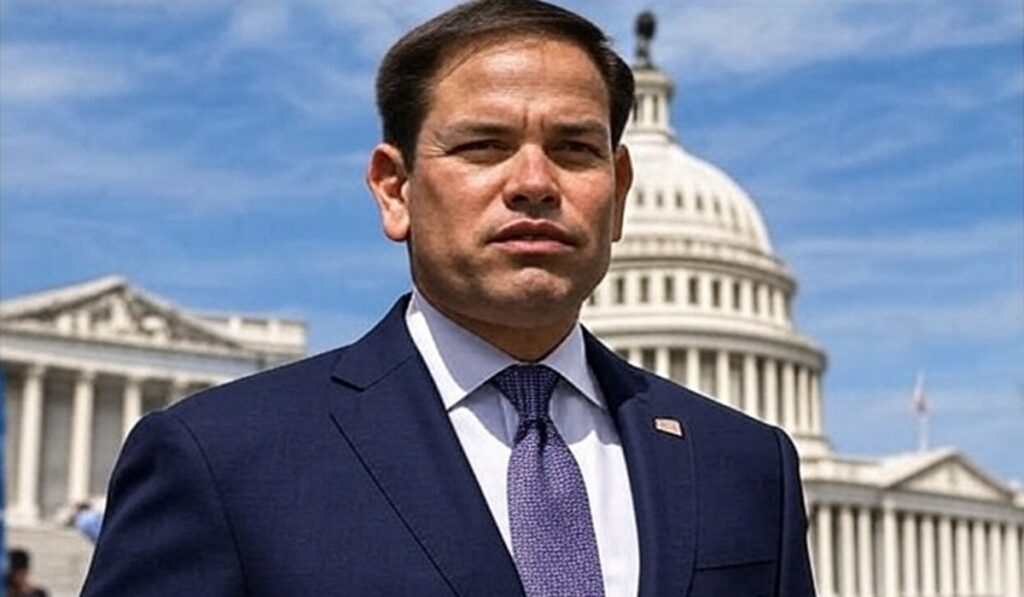U.S. Urges India and Pakistan to De-Escalate Tensions Following Pahalgam Terror Attack
By New Delhi Post Desk, New Delhi:
The United States has called on India and Pakistan to avoid escalating tensions following the deadly terror attack in Pahalgam, Jammu and Kashmir, on April 22, 2025, which claimed 26 lives, mostly tourists. U.S. Secretary of State Marco Rubio engaged in separate discussions with Indian External Affairs Minister Subrahmanyam Jaishankar and Pakistan Prime Minister Shehbaz Sharif on April 30, 2025, to address the rising hostilities and reaffirm U.S. support for counter-terrorism efforts in the region.
U.S. Pushes for De-Escalation Amid Rising Tensions
The U.S. State Department emphasized the need for both nations to de-escalate the situation, with spokesperson Tammy Bruce stating, “Secretary of State Marco Rubio reaffirmed the United States’ commitment to cooperation with India against terrorism. He also encouraged India to work with Pakistan to de-escalate tensions and maintain peace and security in South Asia.” Rubio’s calls came as tensions soared after India accused Pakistan of backing the Pahalgam attack, leading to a series of retaliatory measures, including India’s suspension of the Indus Waters Treaty and closure of the Attari-Wagah border.
Rubio’s Diplomatic Outreach to India and Pakistan
In his conversation with Jaishankar, Rubio expressed sorrow for the lives lost in the “horrific” attack and stressed the importance of bringing the “perpetrators, backers, and planners” to justice, a sentiment Jaishankar echoed in a post on X: “Discussed the Pahalgam terrorist attack with US
@SecRubio yesterday. Its perpetrators, backers, and planners must be brought to justice.” Rubio also urged Pakistan’s Shehbaz Sharif to condemn the attack and cooperate in the investigation, emphasizing the need for both nations to restore direct communication and work together for regional stability. Sharif, however, rejected India’s claims linking Pakistan to the attack and called for an impartial probe, highlighting Pakistan’s own struggles against terrorism.
Background of the Pahalgam Attack and Regional Fallout
The Pahalgam attack, carried out by Islamist assailants in the Baisaran valley, targeted tourists, with the attackers segregating and shooting Hindu men at close range, killing 26 civilians. India has since taken a hard stance, closing its airspace to Pakistani flights on April 30, 2025, and conducting naval firing drills off Gujarat, near the Pakistani border. Pakistan, in response, warned of potential Indian military action within 24-36 hours, with Information Minister Atta Tarar citing credible intelligence. The Pakistani military also initiated unprovoked firing along the Line of Control in Kupwara, Uri, and Akhnoor on the night of April 30, prompting a proportionate response from the Indian Army.
International Concerns and Calls for Restraint
The U.S. intervention reflects broader international concerns over the potential for escalation between the two nuclear-armed neighbors. Rubio’s calls for de-escalation follow a pattern of U.S. diplomatic efforts in the region, similar to those after the 2016 Uri attack when then-Secretary of State John Kerry urged restraint. However, India’s past responses, including retaliatory strikes, suggest that de-escalation may be challenging. Meanwhile, Pakistan’s appointment of ISI chief Mohammad Asim Malik as National Security Advisor signals its heightened state of alert amid fears of Indian retaliation.
A Critical Look at the Situation
While the U.S. push for de-escalation is framed as a neutral stance, it risks oversimplifying the complex dynamics at play. India’s accusations of Pakistani involvement in the Pahalgam attack are rooted in a history of cross-border terrorism, yet Pakistan’s call for a neutral investigation raises questions about accountability and transparency. The U.S. commitment to counter-terrorism cooperation with India is notable, but its simultaneous urging of dialogue with Pakistan may be perceived as downplaying India’s security concerns. As both nations continue to take punitive measures, the path to peace in South Asia remains uncertain, with the potential for further escalation looming large.


